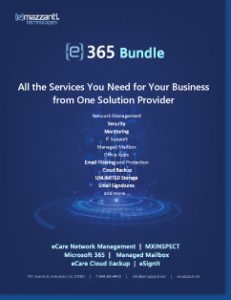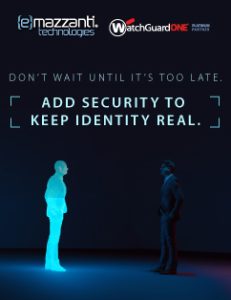Municipalities operate and maintain numerous computerized services such as building permits, taxes, school registration and zoning. Most are seeking reduced costs, improved access to data and enhanced opportunities for collaboration. To achieve those objectives, an increasing number are moving local government applications to the cloud.
What is the Cloud?
Simply put, the cloud is someone else’s computer equipment that is accessed via the Internet. Usage of the cloud often takes the form of a shared service, similar to how customers share a CPA, a car wash or a mobile provider’s network.
Rather than buying all the computer hardware and software on their own, cloud users are renting a portion of those resources, whether that’s measured in compute cycles, processor cores, RAM (computer memory) or the like.
The owners of the computer equipment are better at operating and maintaining the resources in their own data centers, thus relieving their numerous users of that burden.
The best highly visible examples of the cloud are Office 365 and Google Mail. Users of those cloud services no longer build and maintain their own email servers. They’re working off someone else’s system.
How does the cloud reduce costs?
Shared services reduce costs by spreading them among multiple users. For example: Not everyone hires a CPA to sit in their office all day, every day only to prepare a tax return. Indeed, they hire a tax expert for a few hundred dollars who will produce the return.
People use shared services to reduce costs every day, like a car wash or their phone.
The shared resources that cloud services providers, such as eMazzanti Technologies, advertise today are based on the same concept. Their offerings include email, data storage and video conferencing, among others.

Security, Confidentiality, and Compliance
Local governments have a responsibility to secure citizens’ data. When government applications are moved to the cloud, the terms in providers’ cloud service agreements become very important. Not only do government lawyers have to read the agreements, but they must verify them and hold providers accountable.
Recently a credit card company looked for the common factor in a batch of stolen cards. It turned out that a government contractor was scanning IDs and credit cards and making them accessible on an unsecured site that criminals breached.
Unfortunately, local governments may not have the same reporting requirements as other industries. There needs to be more reporting or some type of compliance that offers citizens a way to verify that their data has not been stolen or compromised.
Moving Local Government Applications to the Cloud to Improve Services
Municipalities experience continual pressure to deliver better services at a low cost. To improve services, they can no longer build their own computer infrastructure and operate it inefficiently. They have strong incentives to consider shared services. It’s happening all over the country.
Municipalities used to operate their own accounting systems. Most of them have now moved accounting processing online. Likewise, a lot of computers were used in public works departments for dispatch and asset tracking, etc.
More and more applications are leaving the town hall and moving to someone else’s data center. Often, reduced costs, improved access to data and enhanced opportunities for collaboration result in better service.
Now, cloud-based systems track vehicles everywhere they go inexpensively using GPS and cameras instead of laptops and other electronics. Costs have dropped dramatically to as low as $100 per vehicle. Likewise, police departments have experienced similar cost reductions.

Municipal Data Security Needs Your Voice
For the most part, municipalities do what the public asks of them. Thus, to keep personal data secure, residents must tell public officials their concerns about the security of the information that is stored online and being made publicly available.
A good question to ask might be, “Mr. Mayor, how do you know that our information is secure?”
eMazzanti Technologies urges citizens to attend local government meetings to ask questions and make their concerns known.
Getting Started
Moving local government applications to the cloud requires careful planning. Fortunately, expert cloud services providers offer pre-migration assessments for municipalities looking to do so. Their government IT experts will assess needs and potential benefits to ensure the results you are seeking to achieve.
The process is like that for any other business. Thus, they consider needs (safety, snow removal, permitting, legal services, entertainment, GIS and taxes, etc.) and customers (residents) to optimize infrastructure and cloud solutions.













